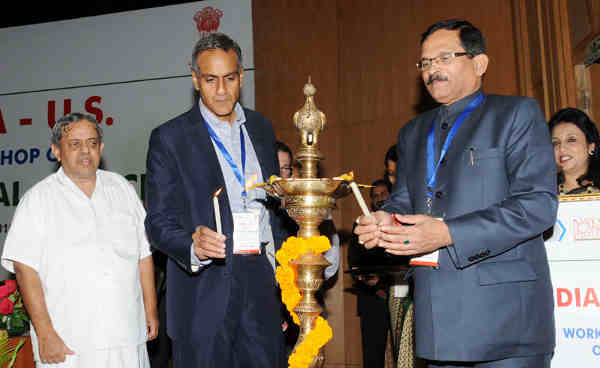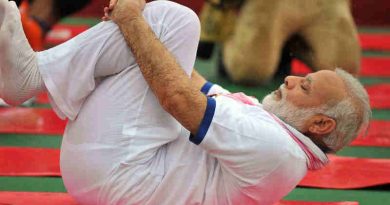Can Traditional Medicine Cure Cancer?

The first U.S.-India Workshop on Traditional Medicine (March 3-4, 2016) began in New Delhi today.
The Workshop was jointly inaugurated by the Minister of State for AYUSH (Independent Charge) and Health & Family Welfare, Shripad Yesso Naik and U.S. Ambassador to India, Richard Verma and Assistant Secretary of Global Affairs at HHS, Ambassador Jimmy Kolker.
Representatives from the U.S. Department of Health and Human Services (HHS) Office of Global Affairs (OGA), the National Institutes of Health (NIH) National Cancer Institute (NCI), and U.S. academic institutions will interact with their counterparts from the Ministry of Ayurveda, Yoga and Naturopathy, Unani, Siddha and Homoeopathy (AYUSH), and Indian research institutes and universities, in New Delhi during the workshop.
[ Also Read: Student Protests Spreading Like Wildfire in India ]
The Workshop is being organized under the auspices of the first U.S.-India Health Dialogue held in September, 2015 in Washington, D.C. This effort underscores the discussions between the U.S. President and the Indian Prime Minister to encourage bilateral dialogue on traditional medicine.
Over the course of the two-day workshop, participants will share current traditional medicine therapies and practices for cancer in U.S. and India.
[ Educhat: Importance of Healthcare for Students ]
They will review available evidence for AYUSH products and interventions, which could reduce pain / morbidity from cancer treatments and improve the quality of life. Scientists will explore opportunities to collaborate on mutually identified research in the areas of natural products, palliative care and other support studies. Professional training and scientific exchanges will be an important aspect of this cooperation.
[ 10 Reasons Why Yoga May Not be Good for You ]
The U.S. delegation also visited several Indian institutes – Benares Hindu University, Jamia Hamdard University, All India Institute of Ayurveda and Medanta – The Medicity, to learn first-hand how Traditional and Modern Medicine co-exist for patient-care.
Nearly 175 participants including experts related to both traditional systems and modern medicine, biologists, and researchers from India and the U.S. will take part in the two day Workshop.
These discussions will be strengthened at the next U.S.-India Health Dialogue this year in India.
Photo courtesy: Press Information Bureau





